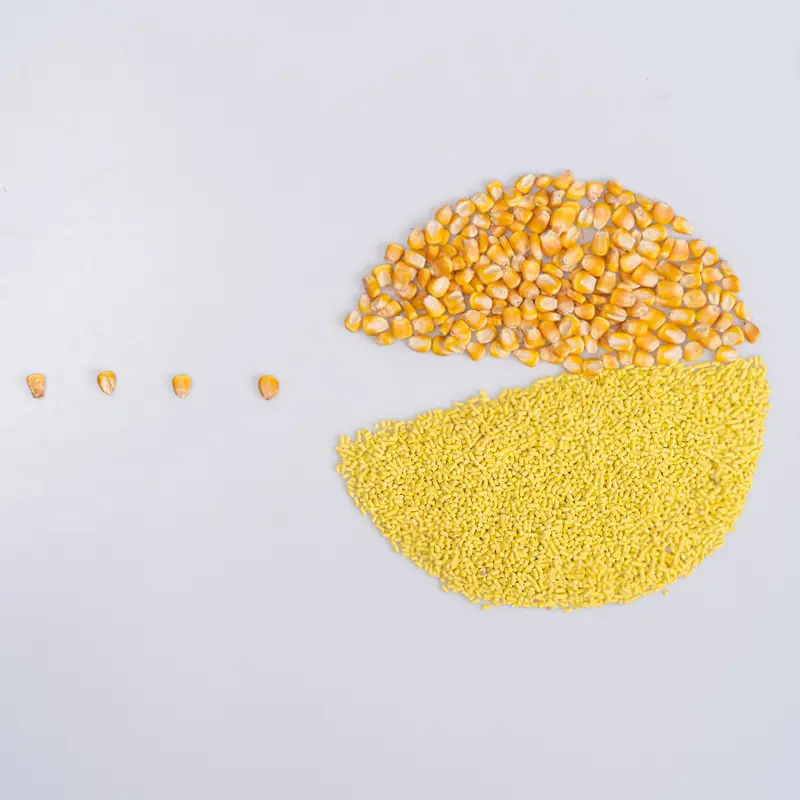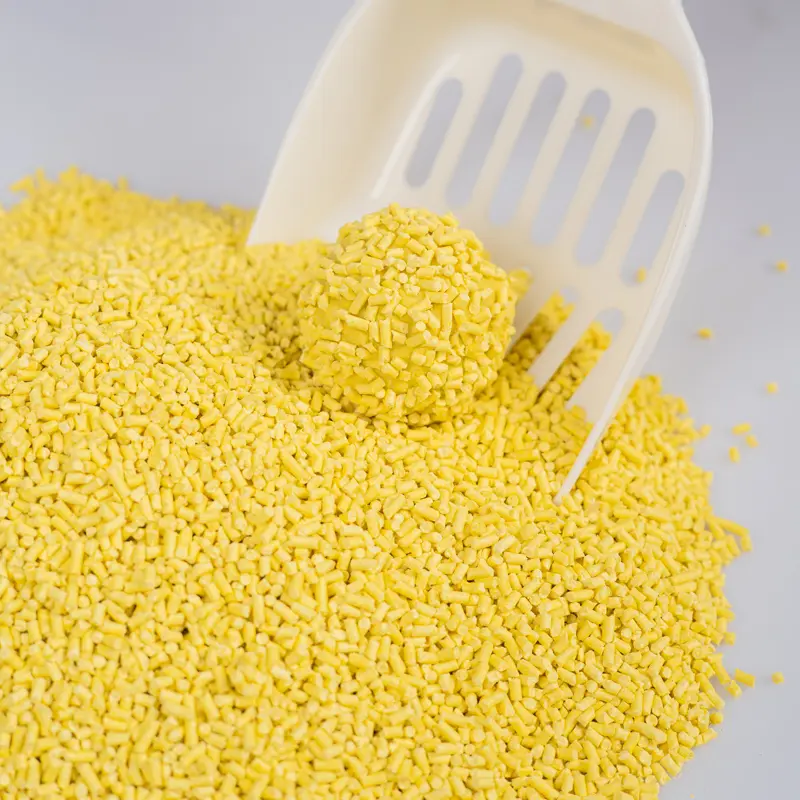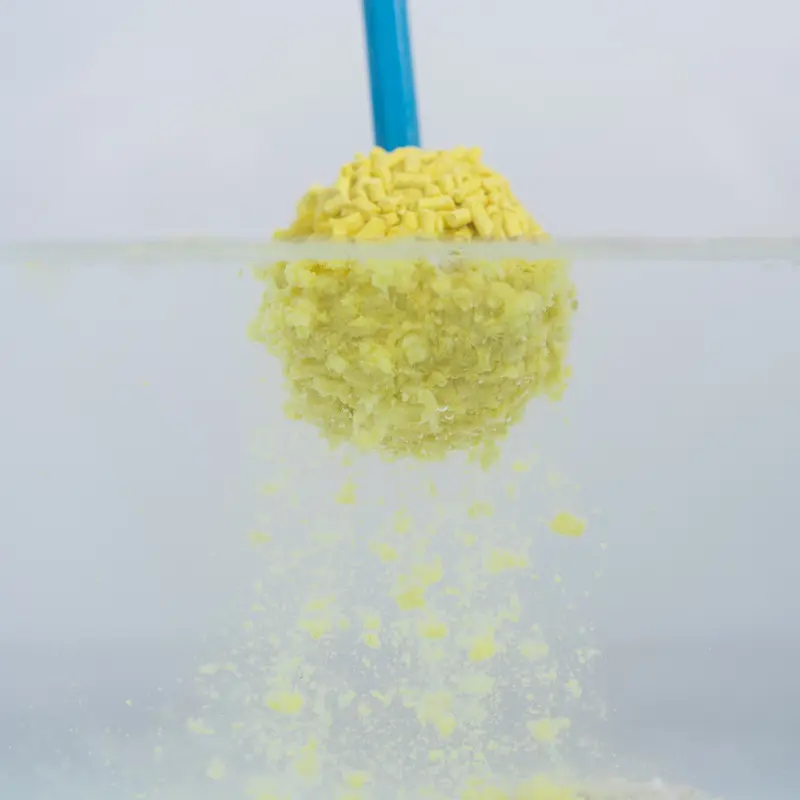
Corn kitty is a type of cat litter made out of corn kernels. It’s an replacement for traditional clay-based cat litters which is considered more beneficial to our environment by a few cat owners. Corn kitty is constructed from natural, renewable resources, that make it a stylish decision for those worried about the environmental impact of cat disposal.In recent year, it is becoming more and more popular in market, because of its high absorption, hard clumps and good odor controls, but it also have their own cons, Let’s talk about its advantange and disadvantage.
________________________________________
What exactly is Corn kitty?
Corn kitty, also referred to as corn-based cat litter, is a type of cat litter made primarily from corn kernels or corn-based materials. It is really an alternative to traditional clay-based or silica gel cat litters.
Corn cat is often a bio-based litter product derived primarily from corn kernels or corn-based materials. It stands apart on the market because eco-friendly attributes and growing interest consumers seeking sustainable pet care options.

From the commercial standpoint, corn cat litter offers several key selling points. It is often marketed being a natural, biodegradable, and renewable alternative to traditional clay-based or silica gel cat litters. This eco-friendly appeal resonates well with environment friendly pet owners, driving its increasing popularity from the pet care industry.
The product or service boasts effective odor control and clumping properties much like conventional litters, forming clumps upon exposure to moisture for easier waste removal. Additionally, its dust-free nature appeals to consumers worried about respiratory issues in their pets or households.
Wholesale distributors recognize the value of highlighting these functions to retailers, emphasizing the product’s benefits in marketing campaigns and sales pitches. They aim to educate retailers on the benefits of corn cat litter, going for promotions and data to effectively communicate these benefits to prospective customers.
Furthermore, coming from a business perspective, corn litter presents opportunities for retailers to diversify their product offerings and appeal to the preferences of owners seeking natural and sustainable selections for their pets. It helps retailers to tap into an increasing market segment dedicated to eco-conscious pet care products.
Just like any product, wholesalers and retailers continually assess consumer feedback, market trends, and product performance to make certain they meet customer demands and gaze after a competitive edge in the pet care industry.
What are the Pros and Cons of corn cat litter?
Pros:
• Biodegradable:
Corn cat litter is commonly biodegradable generating from renewable resources, which can be popular with environment friendly cat owners.Its main materials are corn flour,corn starch and pea fibre, all of which are natrual and plant-based.
• Clumping Properties:
Corn-based litters have clumping abilities, making it simpler to scoop out soiled litter whilst the kitty litter box clean.Our food-grade guar gum could make corn kitty clumps well and non-toxic in your cat’s health.
• Low Dust:
Corn litter will produce less dust when compared with clay-based litters, which is often beneficial for cats as well as their owners, particularly if your cat has respiratory sensitivities. Corn cat is constructed from the highest quality materials, it also challenging to create the dust at the end of cat litter box by using it.
• Natural and Non-Toxic:
Corn litter is made of natural corn kernels which is generally considered safe for cats. It’s free of synthetic chemicals and fragrances that some traditional litters may contain.
• Odor Control:
As corn cat litter can clumps hard, it can be good at controlling odors, making an effort to conserve a fresh-smelling environment.The corn materials also can help to take away the odors.

“From this picture we can easily see the clumps are tight, it can be coverd the odors as well as simple to be scooped out of litter box”
Cons:
• Tracking:
Corn litter could be susceptible to tracking, meaning it could stay with your cat’s paws and stay spread around your house.But if you grab a right height and width of pellets, it’s going to be hard to get got out of kitty litter box.
• Scooping and Clumping:
As it clumps well, the clumps is often softer and much less robust than others formed by clay litters, driving them to more difficult to scoop. Our corn cat together with the best guar gum,which is often make clumps will be more tight than usual corn cat litter rather than an easy task to be broken.
• Attractiveness to Pests:
Natural scent of corn may attract insects, specially in humid or warm environments. Proper storage and hygiene are necessary you need to issue.
• Cost:
Corn litter can be more costly than traditional clay litters, which may be a consideration for a lot of cat owners.

“This picture showed the corn litter might be dissolved into water quickly, therefore it may be flushed into your toilet”
OEM (original equipment manufacturer) corn kitty and wholesale corn cat are two different business models, with each having some benefits and drawbacks.
OEM VS Wholesale corn kitty
OEM Corn Kitty (Original Equipment Manufacturer):
Pros
Brand autonomy: You can construct your own brand image by printing your individual brand and logo on the corn kitty packaging.
Low market risk: There is no need to develop corn cat yourself because existing goods are already out there.
Target sales and marketing: It is possible to focus on advertising and marketing without having to spend energy and resources on production.
Potential for customization: Corn cat features a certain level of customization and is adjusted and modified in accordance with customer needs.
Cons
Low returns: Since corn cat is created by having a 3rd party, profits might be lower. However, it saves the expense of creating a factory, management costs, etc. Out of this perspective, it increases income.
Lack of uniqueness: Corn cat litter may lack uniqueness because other brands may also use the identical OEM manufacturers to produce similar products. Therefore, you are able to discuss with us the parameters of customized corn litter to avoid homogeneity and cost competition.
Reliance upon external suppliers: Attachment to external suppliers is high and might be affected by the supplier’s production capacity and quality control.
Wholesale corn cat:
Pros
Higher Profit Margins: Higher profits may be accomplished by wholesale corn kitty since the production price of corn litter is likely to be lower.
Greater Brand Control: May have greater treatments for brand image and market positioning because Corn Kitty is produced and sold directly on its own.
Flexibility: Product specifications, packaging, etc. may be more flexibly adjusted to satisfy market demand.
By wholesale selling corn cat using their company companies’ brands, you don’t should invest much cash in early stage.
Cons
High initial cost: higher capital investment is essential for production equipment, raw materials and recruiting.
Market risk: Market risks should be borne, including poor revenue, inventory backlog and other issues.
Production management challenges: Challenges in managing production processes, qc, etc. may need certain expertise and experience.
Split up into another woman’s brand, you might be marketing and publicizing it for another person.
Therefore, choosing OEM corn kitty or wholesale corn litter depends upon the specific situation and preferences with the company. If your company desires to focus read more about sales and marketing and is also willing to handle some logistics management challenges, then choosing an OEM might be right. And if the company would like to better control the manufacturer image and get higher income, and is also willing to invest more income and resources being made, then wholesale may be considerably better.
As with every kitty type, it’s important to monitor your cat’s reaction when transitioning completely to another litter. While corn litter is generally safe, some cats could possibly have individual sensitivities or allergies. In case your cat experiences discomfort or health concerns after switching to corn litter, discontinue use and talk to your veterinarian.
Ultimately, the choice of cat depends upon your cat’s preferences, your environmental concerns, along with your specific needs as a pet owner.Gelin Town Pet create a full range corn kitty, their product might be submitted to your test.For those who have any interest, please e-mail us.
For additional information about Tofu Cat Litter you can check this resource

